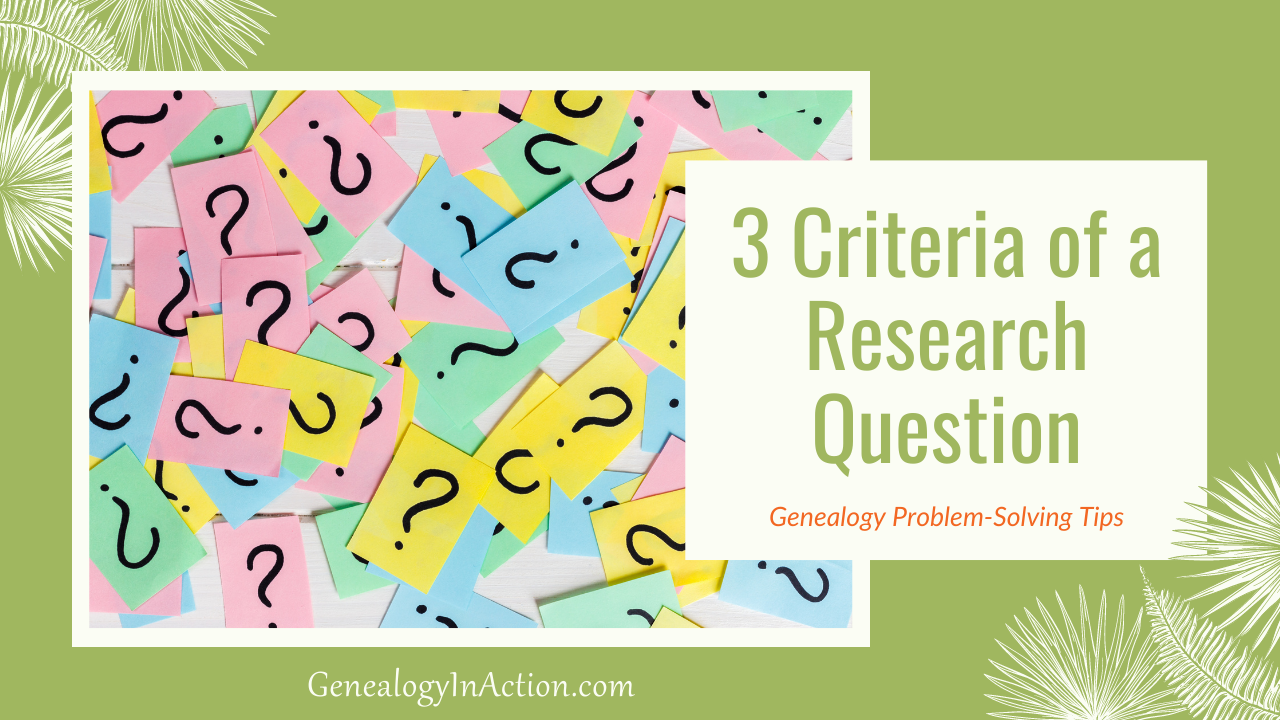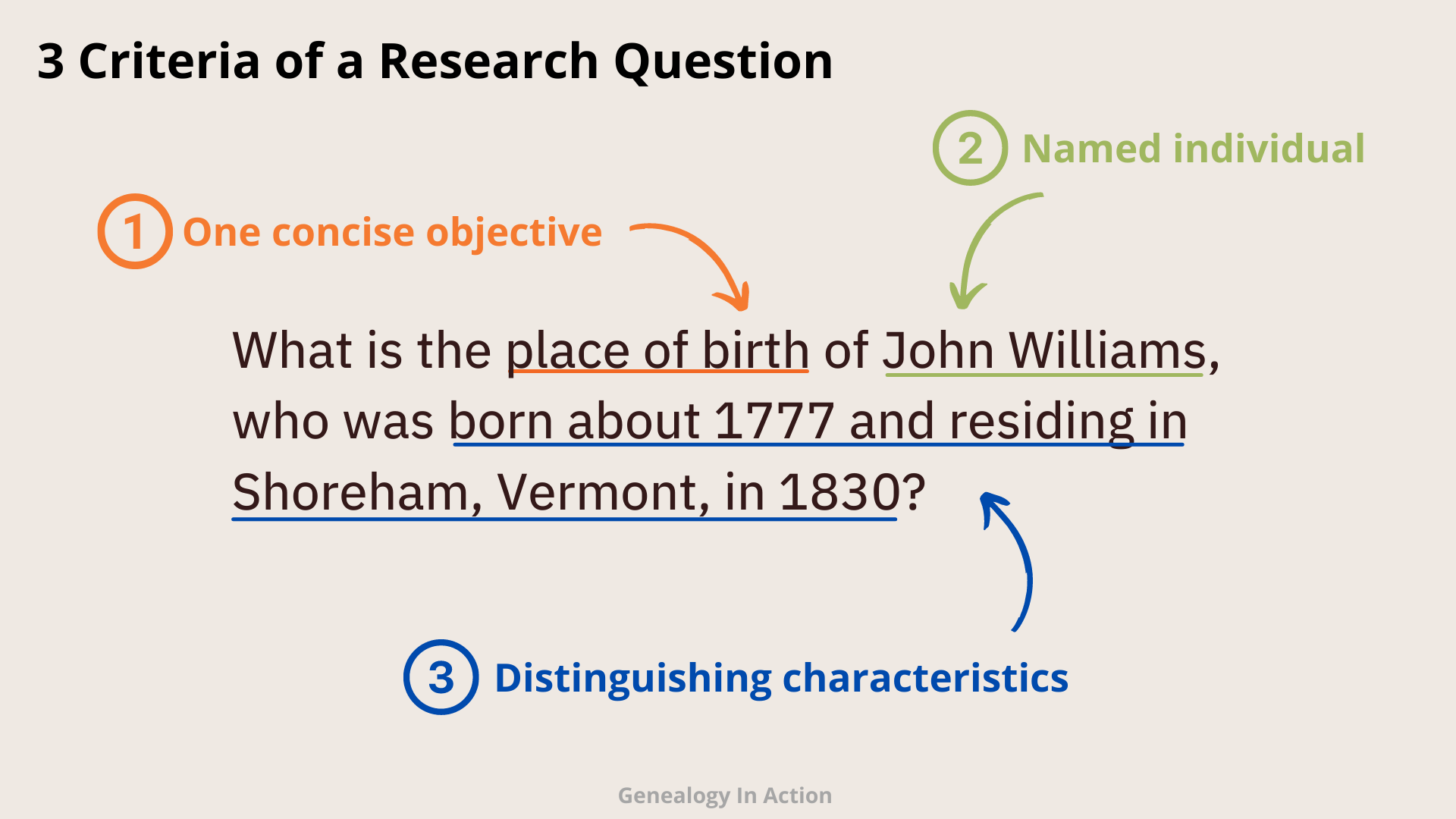
3 Criteria of a Research Question
Apr 23, 2021My biggest joy comes when I get to roll my sleeves up and teach...so today, I'm dropping a love bomb with this 5-minute fix.
When you sit down to research, do you find yourself wandering around, bouncing from record to record, then hours later realize you've gone down 10 different rabbit holes? Yep...been there, done that.
In my signature program I show genealogists how to go from stuck to unstuck using my problem-solving framework. It's all about getting organized and making a plan to stay on track and avoid those bright shiny objects. But in order to begin the journey, all research much start with a question.
Research questions for an individual person should:
- Specify ONE objective: If the research question is too broad, it will be hard to focus and develop a plan of action. Too narrow, and it may be impossible to solve. Striking a balance between the two extremes is the way to go for the best results. The objective could relate to an event, relationship, identity, or situation.
- Name the individual: Be sure to state the full name, as well as any aliases, of the person who is the focus of the research. Stating something like, "my third great-grandfather" with no name, is of no help to you (or other researchers) since you have more than one third great-grandfather. In fact, your relationship to the subject doesn't need to be mentioned at all.
- Include distinguishable characteristics: Adding one or or two known facts about the individual to the question will help distinguish him/her from others of the same name. These characteristics could be a relationship (e.g., daughter of so-and-so), a place (e.g., resided in Fulton County, Illinois, from 1860 to 1900), an event date (e.g., born about 1772), an occupation, and so on. Don't get so detailed here that is takes away from the question. You just need enough to put the person in his or her context to make them unique.

This is just the first step in my overall framework, but with this 5-minute fix, you'll have clarity and focus for your next research project.

Think about the project you're working on right now. Have you formed a research question? If so, does it meet the criteria? If it doesn't or if you don't have a focused question, take a few minutes and, using the tips in this post, modify or craft a research question. Then, pop on over to the discussion of this post on Facebook and share what you're working on.
© Julie Tarr. This article was first published at Genealogy In Action; appearance of this article elsewhere, without my permission, violates copyright.